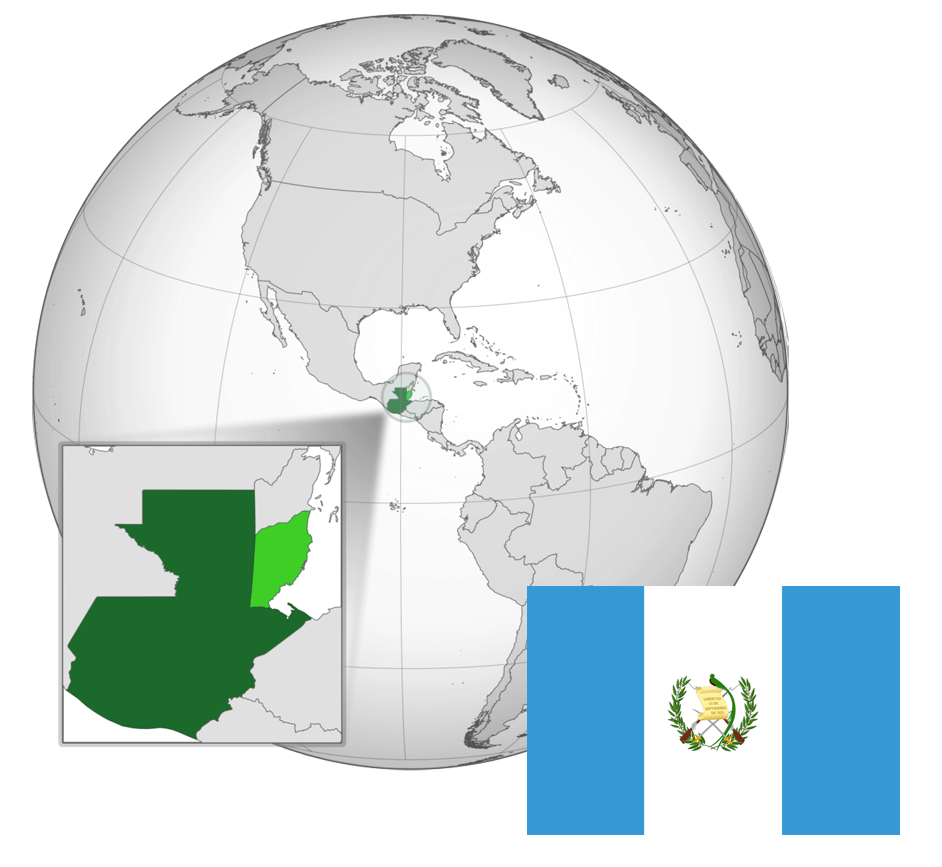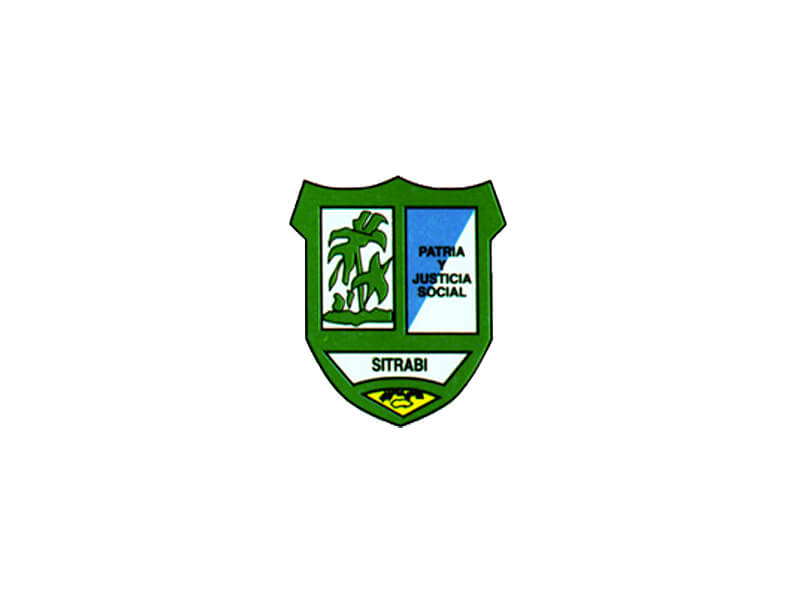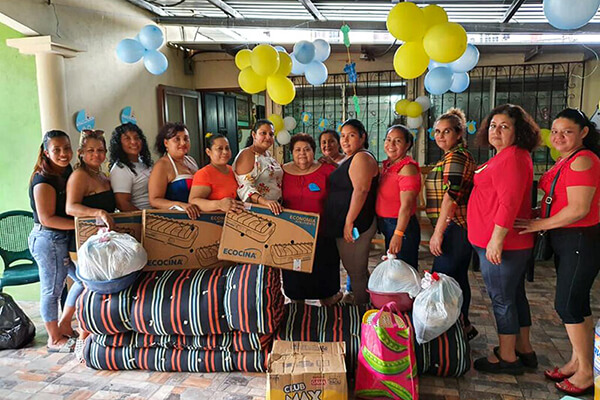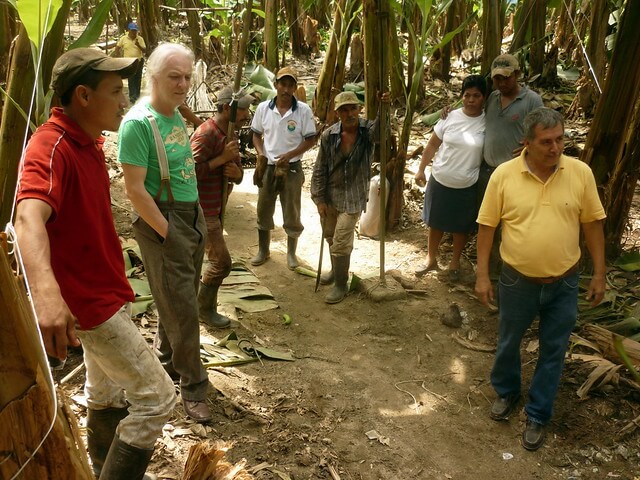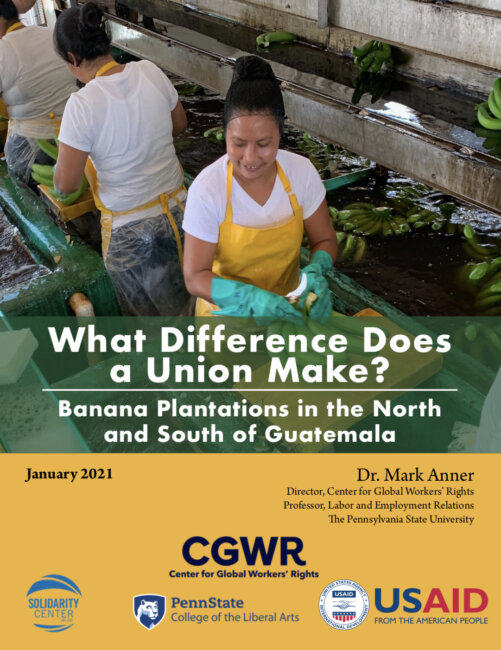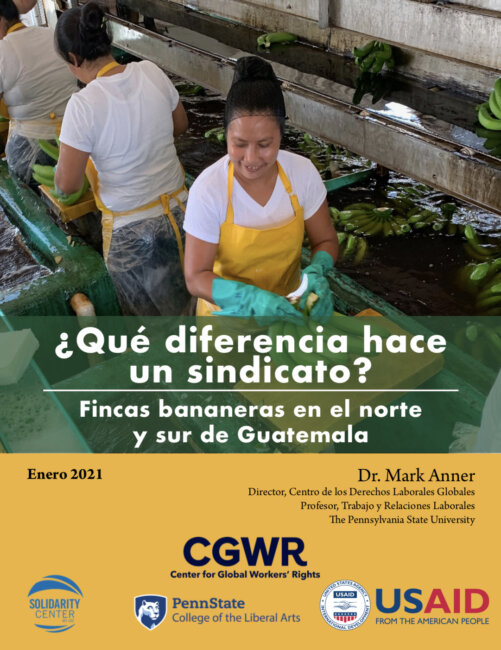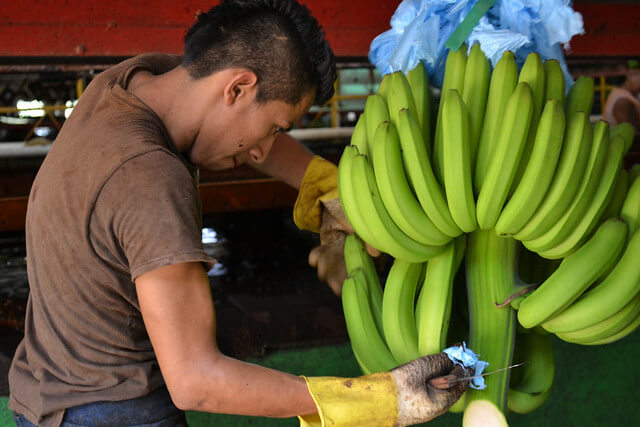You started working on bananas at age 20, but you were born very far from Izabal?
Yes, in the department of Chiquimula. When I was six months old, my father, who was president of an agrarian table under the presidency of Jacobo Arbenz , had to flee to avoid being killed and went to the banana zone.
I grew up there, I went to school and when I was 20 years old I started working in Bandegua, which was already a subsidiary of Del Monte .
Did your father’s story influence your union leadership?
Definitely. My father fought for the people, for the land, against capitalist power, and that is in his blood.
You joined the ranks of the union shortly after working on the farms?
Yes, I held various positions in Sitrabi. In 1994 I was elected Secretary General of the Motagua Committee, and in 2000 Secretary General of the Executive Committee, until last year, when I retired for health reasons.
I no longer wanted to continue even though my colleagues asked me to. I had to become an office manager, behind a desk, looking only at papers, losing relationship with people at their workplace. That goes against my nature.
I think that trade unionists should go to the fields, to the work centres, to the crews, to the packing plants. This is what I try to instil in the new layers of leaders, and luckily they are doing it. You have to be suspicious of leaders who do not leave the comfort of their office.
In all these years have there been changes for good in the banana sector?
We achieved very important things, such as completely turning around the collective agreement that governed until 2000 and that was very harmful to the interests of the workers.
We managed to improve working conditions, that overtime was recognised and we achieved significant salary increases.
They came from a very hard period?
Yes, in 1999 there were two major strikes, one 39 days and the other 28, and many colleagues from the union leadership had to go into exile.
In 2007 they murdered your brother, Marco Tulio Ramírez, who was secretary of Culture and Sports of Sitrabi?
They shot him to death in the door of his house. They also persecuted me and it was thanks to union organisations, including the IUF, that I am alive. They got me a police guard thanks to those pressures.
.
A pure fight and always negotiating?
Sitrabi grew in quantity and quality, positioned itself better nationally and internationally, which Del Monte today recognises.
It was won with the fight and the participation of many people.
The entrepreneurs knew that I did not hesitate to report them internationally, and that hurt them. Once in London, I announced that 600 sick workers, some of them with cancer, were about to be fired. Well, given the pressure and international solidarity, they didn’t fire any of them.
What did the IUF represent throughout your union career?
When in 2000 we were alone negotiating a collective agreement and the company wanted to crush us, the IUF management clearly told Bandegua that if they did not immediately resume negotiations with Sitrabi they would lose their markets and in the end we achieved one of the best collective agreements of our history.
When my brother was assassinated, the IUF Regional did the same to protect my life. You traveled to Guatemala several times and mounted an international campaign.
The IUF has ultimately been central to my union experience.
